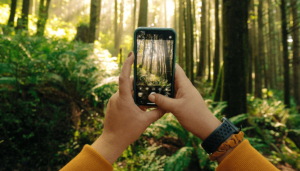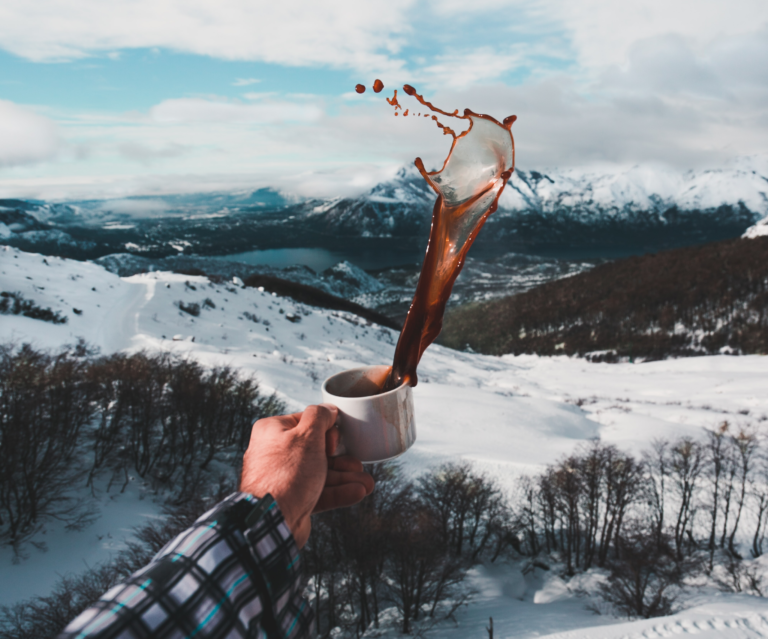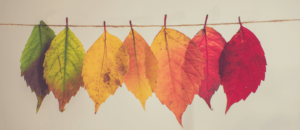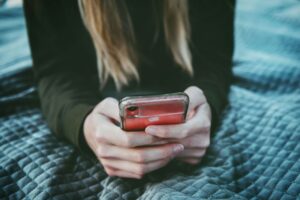
Best Allergy Tracker App 2025
Allergy Tracker App The best apps for tracking allergies in 2025 Published on March 31st 2025 Written by Jesse Driessen Living with allergies—whether triggered by
Published on September 5th 2022.
Written by Jenna Farmer.
Chapters.
1. Can caffeine cause anxiety?
2. Should we switch?
3. Our verdict on Caffeine.
Whether you rely on coffee for a boost of energy when fatigue sets in or have a diet coke habit that you just can’t kick, you’re not alone.
Caffeine, a natural stimulant that is found in a range of drinks such as coffee, tea and coca cola, is something a huge number of us consume regularly. In fact, over 300 million Americans drink coffee every single day, with an average consumption of 3 daily cups.
This doesn’t even include other sources of caffeine-such as soda, iced tea or energy drinks, which many people don’t realise are high in caffeine.
“It’s worth noting that hot chocolate can also have a pretty high dose of caffeine in it,” says BANT registered nutritionist Eva Humphries.

Caffeine isn’t always a bad thing – it can make us feel more alert and energised – and has even been linked to lowering your levels of depression. Quantity is important too. The US Food and Drug Administration considers 400 milligrams (around 4 cups of coffee or around 10 cups of diet cola) safe for adults, suggesting those who are pregnant limit it to 200mg.
However, caffeine has also been linked to anxiety, meaning it might not be a good idea if you live with symptoms of anxiety. Let’s unpick whether coffee can actually cause anxiety and why some people may look into managing anxiety with caffeine alternatives.
Can caffeine cause anxiety? ☕
First up, could too much caffeine be the reason you found yourself down an anxiety spiral this morning? Well, caffeine impacts the body in lots of different ways. One of these is that caffeine blocks adenosine receptors. Adenosine is a neurotransmitter that’s responsible for making us drowsy, so this action helps keep us awake (perfect if you’re trying to function on hardly any sleep or regularly deal with fatigue). This causes the levels of the neurotransmitter dopamine to rise. These high dopamine levels have been linked to anxiety.
“Caffeine also raises cortisol and as cortisol is a stress hormone, that’s why caffeine could make stress and anxiety worse.” says nutritionist Eva Humphries.
Caffeine may increase your heart rate (which may trick you into thinking you’re actually in a state of panic) and whilst lower doses of caffeine make us more alert, higher doses may lead to more anxiety. For example, a recent study found college students with a greater caffeine intake were more likely to be anxious.
However, other research suggests that the impact coffee has on our mental health can actually really vary. After volunteers ingested caffeine and then completed an anxiety inventory 25 minutes later, it was found that caffeine only increased anxiety levels in men, whilst women were not impacted. This suggests it could be that females are potentially less sensitive to caffeine.
It’s not quite as simple as gender differences. You may also be more sensitive to caffeine if you’re already prone to anxiety. Almost 6 million Americans have panic disorder (characterised by regular panic attacks) and research has found they are particularly sensitive to the anxiogenic (e.g. the anxiety-inducing) effect of caffeine, with 5 cups of coffee causing a panic attack in a large percentage of those with the condition.
“When we’re stressed and anxious already, there is already a lot of cortisol floating around so adding more via caffeinated beverages may only make things worse.” explains Eva Humphries.
But why does it feel like we can barely drink a cup without going into stress mode whilst others can handle more before they feel the effect? Well, one thought is those who are more sensitive to caffeine, may metabolise it more slowly in the body, and it, therefore, causes them more issues.
“Some of us are slow caffeine metabolisers which means caffeine sticks around for longer and has a more acute impact.” adds Eva Humphries.
Should we switch to decaf if we’re experiencing anxiety? 🤔
If we know caffeine makes us more prone to anxiety, should we make the switch to coffee alternatives instead?
Well, you may not need to ditch caffeine completely but cutting down on your caffeine is often recommended if you’re prone to anxiety. Much of the research we mentioned focuses on coffee in larger quantities, so the occasional cup of coffee may cause you no issues.
One clinical practice study found that the patients who substantially cut down on their caffeine drinking reported the greatest improvements in their anxiety, but also other common issues – such as sleep disturbance and irritability, suggesting that managing anxiety with caffeine alternatives could certainly be an option for some of us.
However, there’s really no way of knowing how sensitive you are and what your caffeine tipping point is without experimenting with different levels of caffeine. Some may prefer to avoid the risk and opt for no caffeine at all whilst others may prefer to track things more closely. This is where keeping a symptoms diary and tracking your coffee intake may help to pinpoint if caffeine is an anxiety trigger.
Let’s be real though: for some of us, going caffeine-free just isn’t an option. We may rely on energy drinks or coffee to help keep us going through the day; particularly if we have a chronic illness and are low on spoons. If that’s you, then don’t despair, it turns out even switching your caffeine drink to the right time of day could make an impact.
“I encourage the majority of my clients to reach for the coffee at midday rather than first thing. Cortisol, our stress hormone, is already naturally high in the morning because it is the same hormone that helps to wake us up. This naturally falls during the day so having a coffee at midday rather than first thing may not have such a negative impact.” explains nutritionist Eva Humphries.
If you’re reading this and can’t keep count of how many lattes you’ve had today, then it may be important for you to gradually switch over to decaf rather than purely go cold turkey. According to the American Psychiatric Association, caffeine withdrawal is actually classed as a mental disorder and symptoms can include impaired behaviour, increased heart rate, change in blood pressure and, ironically, anxiety itself.
“Caffeine withdrawal symptoms only last one or two days in most cases” advises Eva, and If you don’t drink as much, there is no reason why you can’t just cut it out cold.
“Unless there is a habitual coffee drinking that exceeds three cups a day, I encourage my clients to go cold turkey. There’s a lot of good quality decaf coffee and teas on the market now but for a totally caffeine-free version, chicory coffee has a similar flavour profile to freshly brewed coffee whilst herbal teas are another naturally caffeine-free option” she adds.
The verdict: are caffeine and anxiety connected? 💡
The relationship between anxiety and caffeine isn’t completely clear cut but there is plenty of science that suggests drinking coffee and other caffeine can make anxiety worse for some people, especially if you’re drinking a lot of it, and are particularly prone to anxiety or are more sensitive to this stimulant.
You may not be able to completely ditch the coffee but monitoring and managing your caffeine intake could be one useful strategy in managing life with anxiety. Using the Bearable app can help you track just how much caffeine you’re consuming and the role it might be playing in changes in your anxiety symptoms.
Disclaimer. The information provided is for educational purposes only and is not a substitute for professional medical advice. Consult a medical professional or healthcare provider if they’re seeking medical advice, diagnoses, or treatment.
Help someone out by sharing this article on …

Allergy Tracker App The best apps for tracking allergies in 2025 Published on March 31st 2025 Written by Jesse Driessen Living with allergies—whether triggered by

Seasonal Affective Disorder and Depression Published on November 5th 2024Written by Jesse Driessen What is Seasonal Affective Disorder? Approximately 15 million Americans are thought to

PoTS App The top 5 apps for tracking PoTS in 2024 Published on October 24th 2024Written by Jesse Driessen Living with Postural Orthostatic Tachycardia Syndrome